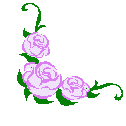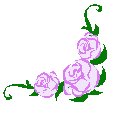Pesach
God separates His own,
has them escape death,
and pulls them away from Egypt
André H. Roosma
4 April 2012
And Moses said [as ordered
by God to Pharaoh]: Thus says YaHUaH: “About midnight
I will go forth in the midst of Egypt; and all the first-born in the land of
Egypt shall die, from the first-born of Pharaoh who sits upon his throne,
even to the first-born of the maidservant who is behind the mill; and all
the first-born of the cattle. And there shall be a great cry throughout
all the land of Egypt, such as there has never been, nor ever shall be again.
But against any of the people of Israel, either man or beast, not a dog shall
growl; that you may know that YaHUaH makes a distinction between the
Egyptians and Israel.”
Exodus 11: 4-7
The original Hebrew name of the First Testament Passover festival:
פסח - Pesach, fascinated me extraordinarily during the last weeks.
So I explored a little. Here some of my musings.
The word Pesach is related to
the verb פסח - pasach: ‘to pass over’.
The above text made me somehow associate pasach also to
נסח - nasach:
‘to tear away’.
By what He made to happen that night, YaHUaH
pulled Israel away from Egypt.2
However, Pesach begins with the letter
פ; in the old pictographic script that
I often study1 this is:  : an opening. That is
fitting, to pull Israel away God created an opening in the lines of the
Egyptians. And the symbolism does not end there. The word Pesach has many associations, as I discovered. : an opening. That is
fitting, to pull Israel away God created an opening in the lines of the
Egyptians. And the symbolism does not end there. The word Pesach has many associations, as I discovered.
The blood of the slaughtered Pesach
lamb was put in a ‘basin’ or ‘bowl’, a ספ - saph (see
Exodus 12: 22).
From there it was applied to the lintel and the two doorposts. Remarkably,
the doorstep and side posts of an entrance were also denoted by this word
ספ. From the old symbols this is
understandable:   -
saph: palm tree opening, represents: doorstep or entrance. The palm
tree here is a model for a stable, straight up pole or column and the opening
is the doorway. Here we recognize two of the symbols from the word Pesach - -
saph: palm tree opening, represents: doorstep or entrance. The palm
tree here is a model for a stable, straight up pole or column and the opening
is the doorway. Here we recognize two of the symbols from the word Pesach -    . .
That night the blood on those doorposts cared that all Israelites
were protected against the death sentence of God over the first born in
Egypt. And that counted also for all who had joined them
– and especially their God! – to be pulled out of Egypt!
By faith he [Moses] kept the Passover and sprinkled the blood to keep the
destroyer of the firstborn from touching the people [of Israel, and who associated themselves with them].
Hebrews 11: 28
And the next day they all had to go through that same doorway, along that
blood, to go their way with God to the new life, to the promised land.
What a wonderful reference to what Yeshu‘ah
(Jesus) performed close on one and a half thousand years later by shedding
His blood... His outpoured blood was an overture to His victory over death.
And that counts for all who are willing to follow Him, setting out
for a new life, to a marvelous future that He has prepared.
Saved from death by His shed blood, we are also invited to start out
on the journey with God, first be separated from the limited pleasures of our
old ‘Egypt’ to finally receive a far better inheritance!
Therefore, having so vast a cloud of witnesses
surrounding us, and throwing off everything that hinders us and especially
the sin that so easily entangles us, let us keep running with endurance the
race set before us, fixing our attention on Jesus, the Pioneer and Perfecter
of our faith, Who, in view of the joy set before Him endured the cross,
disregarding its shame, and is seated at the right hand of the throne of
God.
Hebrews 12: 1-2
Something to chew on
What does the above comparison mean for your taking part in the Lords
Supper, and especially in the Communion wine, coming Thursday or Friday?
What could be an ‘Egypt’ from which
Yeshu‘ah might want to separate you?
In other words: Are you open to Yashu‘ah
separating you from certain things that people around you consider
perfectly normal?
Compare the above to what David wrote in Psalm 16.
Which parallels do you see?
Notes
This is a sequel to: The Shema‘ – the First Testament declaration of faith (1),
Part (2),
Part (3),
Part (4),
Part (5), and
Torah
- (1) A series of laws and commandments?,
(2)
Throughout the First Testament,
(3)
Absolutely delightful!,
(4)
Yeshu‘ah and the Torah,
(5)
The Ten Words – a special beginning,
(6)
Yeshu‘ah and the Ten Words and
(7)
Chag Shabhu‘ót - The Feast of Weeks or Pentecost.
The next article in this series is: Pesach (2) God opens the way to life
|


